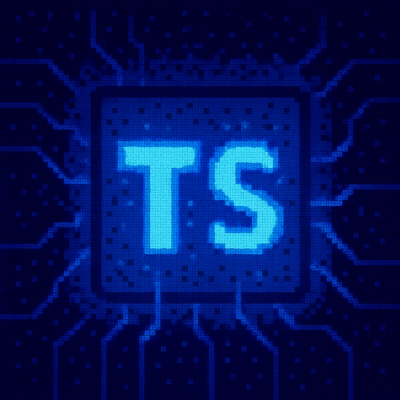
Security News
Critical Security Vulnerability in React Server Components
React disclosed a CVSS 10.0 RCE in React Server Components and is advising users to upgrade affected packages and frameworks to patched versions now.
bkblz
Advanced tools
=begin
tldr: $ gem install bkblz $ bkblz help
More...
This is the bkblz Ruby gem, a library for the Backblaze B2 cloud storage API: https://www.backblaze.com/b2/docs/
Currently the gem supports the following V1 API calls:
Run ruby README.rb for a working demo, but first add your
application key and account id in the slots below.
Or gem install bkblz to begin. After install try bkblz -h to use
the CLI
=end
$: << 'lib' require 'bkblz'
Bkblz.configure do |config_map| config_map.merge!( :application_key => "!!! API KEY !!!", :account_id => "!!! ACCOUNT ID !!!", :debug_http => false, :log_level => :info # change this to :debug for more info ) end
Bkblz.log.info do <<-EOS
EOS end
if Bkblz.config.account_id.match /!!!/ Bkblz.log.error "you didn't fill in your credentials, read the comments" exit 1 end
def run_readme Bkblz.log.info do <<-EOS
EOS end Bkblz::V1::Session.authorize Bkblz.config do |session| Bkblz.log.info "API session => #{session}"
Bkblz.log.info do <<-EOS
# First try to find an existing bucket named my-test-bucket,
# we'll use that if it exists. All requests in a session are sent
# through the session so that the request object gets access to the
# auth credentials.
EOS
end
buckets = session.send(Bkblz::V1::ListBucketsRequest.new).buckets
Bkblz.log.info "bucket list => #{buckets}"
new_bucket_name = "bkblz-readme-bucket"
bucket = buckets.find { |b| b.bucket_name == new_bucket_name }
Bkblz.log.info do <<-EOS
# Otherwise create a new my-test-bucket
EOS
end
begin
unless bucket
bucket = Bkblz::V1::Model::Bucket.new \
:bucket_name => new_bucket_name,
:bucket_type => "allPrivate",
:account_id => session.account_id
Bkblz.log.info do <<-EOS
# Pass a model to the CreateBucketRequest,
# models are just named wrappers with dynamic methods
# around the JSON responses provided back from the Bkblz
# API. See lib/bkblz/v1/models.rb for a list of defined API
# objects. See Bkblz::V1::Model::Base for how it work.
EOS
end
request = Bkblz::V1::CreateBucketRequest.new bucket
Bkblz.log.info "bucket model => #{bucket}"
# Bkblz::V1::Response objects are returned from +send+. Some
# provide a to_model method if they declare the +response_model+
# in the class definition.
bucket = session.send(request).to_model
Bkblz.log.info "created bucket => #{bucket}"
end
Bkblz.log.info do <<-EOS
# Uploading a file begins with getting a dynamic URL from the API.
EOS
end
upload_auth = session.send(
Bkblz::V1::GetUploadUrlRequest.new bucket.bucket_id).to_model
Bkblz.log.info "upload file URL => #{upload_auth.upload_url}"
Bkblz.log.info do <<-EOS
# Use the upload_auth model (a
# Bkblz::V1::Model::UploadAuth) to upload some files.
EOS
end
5.times do |i|
body = "some text #{i}"
file_name = "some_text_#{i}.txt"
content_type = nil
upload_file_info = session.send(
Bkblz::V1::UploadFileRequest.new upload_auth, body, file_name,
content_type, Time.now.to_i * 1000).to_model
Bkblz.log.info "uploaded file => #{upload_file_info.file_name}"
end
Bkblz.log.info do <<-EOS
# We uploaded 5 files above, here we'll read back out
# metadata from the first 2 files in the bucket.
EOS
end
list_files_response = session.send(
Bkblz::V1::ListFileVersionsRequest.new bucket, 2)
bucket_files_info = list_files_response.files
Bkblz.log.info "first 2 files => #{bucket_files_info.map(&:file_name).join "\n"}"
Bkblz.log.info do <<-EOS
# The response object returned object is a
# Bkblz::Api::PaginatedResponse. Use its +has_more?+ and
# +next_request+ methods to page through more results.
EOS
end
while list_files_response.has_more?
list_files_response = session.send list_files_response.next_request 100
bucket_files_info.concat list_files_response.files
Bkblz.log.info "next N files => #{list_files_response.files.map(&:file_name).join "\n"}"
end
Bkblz.log.info do <<-EOS
# Files can also be listed by name.
EOS
end
list_files_response = session.send(
Bkblz::V1::ListFileNamesRequest.new bucket, 10)
bucket_files_info = list_files_response.files
Bkblz.log.info "files by name => #{bucket_files_info.map(&:file_name).join "\n"}"
Bkblz.log.info do <<-EOS
# Files can be downloaded by file name
EOS
end
file_name = bucket_files_info.first.file_name
file_name_download = session.send(
Bkblz::V1::DownloadFileByNameRequest.new bucket, file_name).to_model
Bkblz.log.info file_name_download
Bkblz.log.info "file body: #{file_name_download.body}"
Bkblz.log.info do <<-EOS
# Files can also be downloaded by file id
EOS
end
file_info = bucket_files_info[1]
file_id_download = session.send(
Bkblz::V1::DownloadFileByIdRequest.new file_info).to_model
Bkblz.log.info file_id_download
Bkblz.log.info "file body: #{file_id_download.body}"
Bkblz.log.info do <<-EOS
# File byte ranges can also be downloaded
EOS
end
bytes = (2..8)
byte_range_download = session.send(
Bkblz::V1::DownloadFileByNameRequest.new bucket, file_name, bytes).to_model
Bkblz.log.info "file bytes: #{byte_range_download.body}"
# TODO: add examples for uploading large files by parts... see lib/bkblz/task/upload_file
rescue => e
Bkblz.log.error "there was an error: #{e}"
Bkblz.log.error e.backtrace.join "\n"
Bkblz.log.warn "cleaning up the bucket"
ensure
clear_the_bucket session, bucket
end
end end
def clear_the_bucket(session, bucket) list_files_response = session.send( Bkblz::V1::ListFileVersionsRequest.new bucket) bucket_files_info = list_files_response.files
Bkblz.log.info do <<-EOS
EOS end bucket_files_info.each do |file_info| request = Bkblz::V1::DeleteFileVersionRequest.new file_info delete_file_version_response = session.send request Bkblz.log.info "deleted file => #{delete_file_version_response.to_model.file_name}" end
Bkblz.log.info do <<-EOS
EOS end request = Bkblz::V1::DeleteBucketRequest.new bucket delete_bucket_response = session.send request Bkblz.log.info "deleted bucket => #{bucket.bucket_name}/#{bucket.bucket_id}" end
run_readme
FAQs
Unknown package
We found that bkblz demonstrated a not healthy version release cadence and project activity because the last version was released a year ago. It has 1 open source maintainer collaborating on the project.
Did you know?

Socket for GitHub automatically highlights issues in each pull request and monitors the health of all your open source dependencies. Discover the contents of your packages and block harmful activity before you install or update your dependencies.

Security News
React disclosed a CVSS 10.0 RCE in React Server Components and is advising users to upgrade affected packages and frameworks to patched versions now.

Research
/Security News
We spotted a wave of auto-generated “elf-*” npm packages published every two minutes from new accounts, with simple malware variants and early takedowns underway.

Security News
TypeScript 6.0 will be the last JavaScript-based major release, as the project shifts to the TypeScript 7 native toolchain with major build speedups.